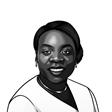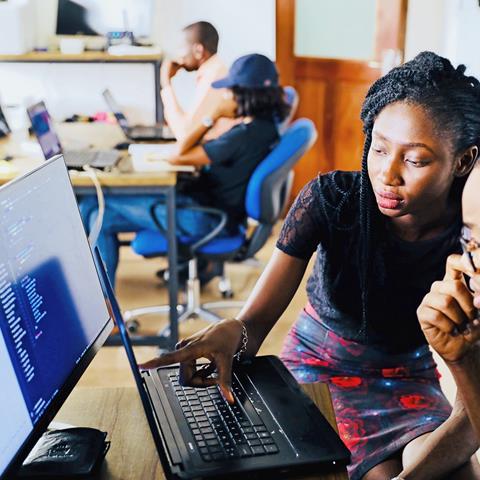My team and I are in the process of launching a conference entitled ‘Changing the Story for Black Biomedical Scientists’ for Black undergraduate students with an invitation to students within secondary school and sixth form.
This conference, on 26 April 2023 at the University of West London (UWL), and sponsored by the Medical Research Council (MRC), Wellcome Trust and The Academy of Medical Sciences, is designed to inspire Black students to pursue academic careers in science, as the percentage studying the course at universities is very small. We wish to build a network of Black students and academics across the biomedical space and foster collaborations, work experience and other opportunities. The idea came about, in part, as a result of my experience as a young Black woman at university in the 1990s.
Back then, I was one of just five Black students studying biochemistry at King’s College London, not that it bothered me at the time – it was a privilege to be there. I was born at King’s College Hospital. My mother, in particular, was proud of anything associated with King’s. As a deputy headteacher in Nigeria, she always instilled in us the importance of working hard and asking questions. Yet I would never raise my hand in the lecture hall for fear of saying something wrong. I was the one who always spoke to the lecturers afterwards. Despite the pride I felt at being part of this incredible institution, I was struggling – and not brave enough to admit it.
During my freshers’ week, there were so many opportunities, including hundreds of societies, but I didn’t really understand how they would benefit me. I feared that social activities would be a distraction from my studies.
We had several modules each term, and there were so many books the lecturers recommended, I thought that to pass my course I would need to purchase every one of them, but there was no way I could have used them all. I would study on my own and spend endless hours trying to understand concepts that were new to me.
When reflecting on my time at King’s, I’m certain it would have been extremely beneficial to have had a peer mentor – someone who looked like me, who understood my challenges and was familiar with my background and lived experiences, someone I could turn to and who could help guide me on my university journey.
Peer mentoring, on the most basic level, involves a senior student (mentor) supporting someone more junior (mentee). It would likely be a final-year or second-year student supporting a first-year student, helping them navigate any challenges they might experience while on the same course.
Had I had a peer mentor, I would have learned the benefits of societies – in particular, the importance of improving interpersonal skills and building networks, and the role this could play in developing my future career.
Had I had this support, from someone who had already gone through the process, they could have also advised me on books, explained concepts and even guided me on effective ways to study and manage time. This could have really helped raise my confidence and self-esteem, which I lacked. I could have learned from their direct experience: did they also struggle with their confidence or with a sense of belonging at the university and, if so, how did they overcome it?
Today, as an Associate Professor of Biomedical Science at UWL, I am pleased that when students start their degree, they are encouraged to request a peer mentor. Students in Year 2 and Year 3 have already volunteered to mentor freshers. Peer mentoring, I believe, is so essential, and I would recommend it to every student at uni.
Peer mentoring is the focus of my charity, Youth Against Crime not Crime Against You (YACnCAY), a preventative organisation, that I started in September 2000, whose aim is to ensure young people make good choices in life.
Lastly, peer mentoring will be one of the features of the undergraduate conference that we are about to launch. The team will consist of myself as the senior person and postgraduate students who are bringing the ideas and directing events. They then will act as peer mentors to the undergraduate students, secondary and sixth-form students.
In January 2020, a parent confided in me at a workshop that she did not encourage her daughter to pursue a career in biomedical science as representation was lacking. I explained to her that there were some, but we are at times invisible. I then suggested she introduce her to me, which led me to organise a mentor who was a female scientist who looked like her.
I would like everyone, especially Black students, to have that sense of belonging in any career, especially biomedical science.
Learn more by listening to The Foundation for Science and Technology (FST) podcast










No comments yet